Podcast: Play in new window | Download (Duration: 30:08 — 20.8MB) | Embed
Subscribe: Apple Podcasts | Spotify | Amazon Music | Android | Pandora | iHeartRadio | JioSaavn | Podchaser | Gaana | Podcast Index | Email | TuneIn | Deezer | Anghami | RSS | More

I Can’t Go On – Struggles in the Spiritual Life with Fr. Timothy Gallagher O.M.V.
Fr. Timothy Gallagher and Kris McGregor discuss the struggles many people face in their spiritual lives, this time by using a case study involving “Paul,” a high school teacher who becomes overextended by balancing his full-time job, pursuing a master’s degree, and taking on additional responsibilities in his parish. As Paul pushes himself, he starts to experience severe burnout, leading to exhaustion, a decline in his spiritual practices, and a growing sense of discouragement.
The importance of recognizing signs of burnout and the need to take practical steps to manage it, Fr. Gallagher suggests that Paul should slow down his studies, openly communicate with his wife, and possibly seek medical advice; as well as the value of journaling as a spiritual practice, helping individuals to understand their experiences more deeply and track their spiritual progress over time.
The conversation also touches on the importance of maintaining a balanced spiritual life, such as participating in the Eucharist, setting aside time for meditation, and being aware of God’s presence throughout the day. Fr. Gallagher advises against overcommitting and stresses the need to choose sustainable spiritual practices that can be consistently maintained. He also reflects on the need to make conscious choices about how we use technology to avoid it dominating our lives and contributing to spiritual and emotional exhaustion.
You can pick up a copy of the book here.
Discerning Hearts Reflection Questions
- Identifying Spiritual Struggles: What specific struggles are you currently facing in your spiritual life that might be affecting your emotional and physical well-being?
- Recognizing Burnout: Have you noticed signs of burnout, such as feeling overwhelmed or burdened by activities that once brought you joy?
- Evaluating Life Choices: Are there any major decisions you’ve made recently that, in hindsight, may not have been properly discerned?
- Maintaining Balance: How balanced are the key areas of your life, such as work, prayer, rest, and family, and do any of these need adjustment?
- The Role of Journaling: Could keeping a spiritual journal help you gain deeper insight into your spiritual journey and monitor your progress?
- Incorporating a Rule of Life: Do you have a sustainable spiritual routine or rule of life that supports your faith and well-being?
- Avoiding Distractions: Are there distractions, like excessive phone use, that might be disrupting your peace and spiritual focus?
An excerpt from the book:
“In this and the preceding chapters, we have explored spiritual struggles arising from physical and psychological factors. As we have seen, the solution lies in suitable physical and psychological remedies. What, however, of struggles arising from specifically spiritual sources? What might these struggles be, and how can we best respond to them? We will begin now to address these questions.”
Gallagher O.M.V, Fr. Timothy ; Gallagher O.M.V, Fr. Timothy. Struggles in the Spiritual Life: Their Nature and Their Remedies (p. 28). Sophia Institute Press. Kindle Edition.
To find more episodes from this series, visit the Struggles in the Spiritual Life Podcast
From the book’s description: “Here is a powerful, life-changing book that will help you understand and conquer the struggles you face in your spiritual life. It’s a book for those who love the Lord and desire holiness yet often feel adrift or stagnant in their search for spiritual growth.
All of us encounter valleys on our journey with the Lord — those periods of spiritual desolation that are a painful yet unavoidable feature of our prayer life. Spiritual desolation is as complex as we are, so understanding what is happening and responding to it properly are critical to reaching the heights of holiness.
With warmth and understanding, Fr. Gallagher carefully identifies in this book the various forms of spiritual and nonspiritual desolation and supplies the remedy for each. You’ll learn how to discern whether your struggles derive from medical or psychological conditions or whether those struggles are spiritual and permitted by the Lord for reasons of growth. In each case, you’ll be given the remedy for the struggle. You’ll also learn the forms of spiritual dryness and of the Dark Night — and how to respond to them.
In chapter after chapter, Fr. Gallagher presents a particular struggle as experienced by fictional characters and then provides the advice he gives to those who come to him for spiritual direction about that struggle. You’ll gain confidence as you journey through desolation, and you’ll learn to reject the enemy’s ploys to infect you with a sense of hopelessness.”
Did you know that Fr. Timothy Gallagher has 14 different podcast series on Discerning Hearts Catholic Podcasts?
Visit here to discover more!

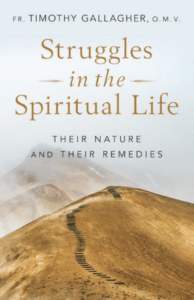
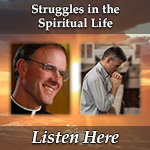

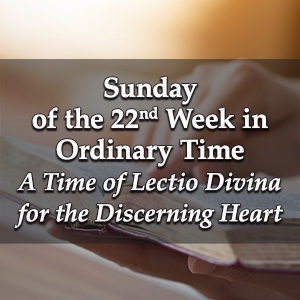 Sunday of the Twenty-Second Week in Ordinary Time – A Time of Lectio Divina for the Discerning Heart Podcast
Sunday of the Twenty-Second Week in Ordinary Time – A Time of Lectio Divina for the Discerning Heart Podcast

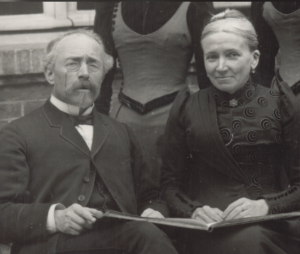
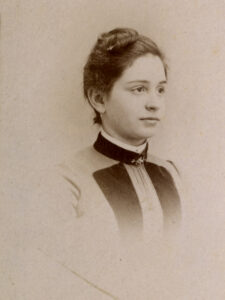
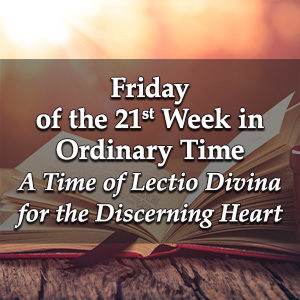 Friday of the Twenty-First Week in Ordinary Time – A Time of Lectio Divina for the Discerning Heart Podcast
Friday of the Twenty-First Week in Ordinary Time – A Time of Lectio Divina for the Discerning Heart Podcast

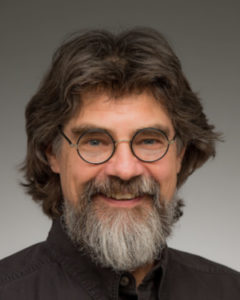





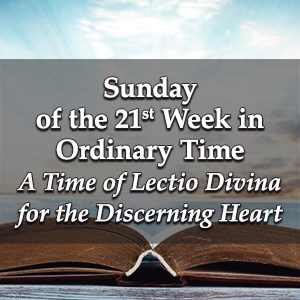 Sunday of the Twenty-First Week in Ordinary Time – A Time of Lectio Divina for the Discerning Heart Podcast
Sunday of the Twenty-First Week in Ordinary Time – A Time of Lectio Divina for the Discerning Heart Podcast